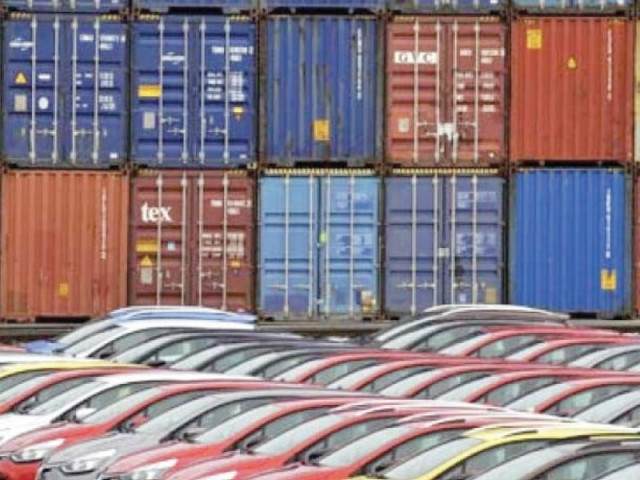Auto sector seeks tax rationalisation
Insists increase in duties will help regulate excessive import of used cars

Experts have expressed grave concern about the plight of the struggling auto industry and its future outlook, while appealing to the government to control the massive influx of imported vehicles through rationalising taxes.
They said such a move will revive the local market, protect the interests of local car manufacturers and ensure the sustainability of livelihoods.
“The auto industry has urged the government to look into it, while taking measures in the upcoming budget for supporting the industry,” Indus Motor Company (IMC) Chief Executive Ali Asghar Jamali said while talking to a group of journalists on Wednesday.
He said increasing duties (including indiscriminately implementing the regulatory duty on all types of imported used cars, instead of a selective drive) and taxes in the upcoming budget will provide an opportunity to regulate the excessive import of used cars, along with helping the local auto industry to benefit from a slightly better business climate, stable exchange rate and the foreseeable reduction in interest rate.
“We were expecting an improvement in auto demand from January 2024 onwards, but this too has proved disappointing for the industry, due to substantial imports of used cars. It also continues to impact the local vendors adversely,” said Jamali.
During July-April of this fiscal year, the local automakers recorded a drop of 35% in their sales against the same period of last year.
Simultaneously, imports of used cars surged 553% to 30,679 units in July-April FY24 against 4,701 units in the corresponding period of last year.
He said if the situation persists, it will force vendors to wind up their business, since their operations are currently at an unfeasible level, hovering between 25% and 30% of capacity.
Pakistan Association of Automotive Parts and Accessories Manufacturers (Paapam) chairman has recently said that the industry has invested about $2.5 billion and generated about 2.5 million direct and indirect jobs, while contributing about Rs400 billion to the national exchequer in FY22 alone. The local industry has an annual production capacity of 500,000 units, with 13 companies collectively producing more than 40 models.
At present, the average monthly import of 3,068 used cars (taken from July 2023 to April 2024) has made local businesses unsustainable, which may lead to unemployment and economic loss (in terms of taxes), said Jamali. Illegal channels of Hawala and Hundi are used for sending foreign exchange for used vehicles, which is not the case with the industry that uses the legal route for importing auto parts into the country. Similarly, taxes are sent through the same methods overseas in order to supply used cars into the country, which is completely illegal.
“There is a need to have sufficient processes in place to allow used vehicles to be imported into the country, only for the use of overseas Pakistanis’ families,” said Jamali.
He said the import of used cars is hurting the country in several ways, including devaluation of the rupee, threatening the sector’s future investments and denting the country’s foreign exchange reserves.
Auto sector analyst and IBA Assistant Professor Dr Aadil Nakhoda told The Express Tribune that it seems there is an uptick in sales of local automobiles. Also, sales of imported cars have increased over the previous year.
Restrictions on imports have been relaxed under the International Monetary Fund (IMF) programme, which has given some impetus to sales in the auto industry, he said.
Highlighting the outlook of the industry, he said: “It is two-pronged. Lower inflation rates, improved confidence and successful negotiations with the IMF may increase sales as economic activity in the country recovers. However, there is a significant chance that taxes on cars may go up, which may create distortions in the industry. For instance, we may see consumers change their preferences towards cheaper models or hold back purchases due to higher taxes. Lower inflation rates and interest rates may scale up demand for car financing.”
Published in The Express Tribune, June 6th, 2024.
Like Business on Facebook, follow @TribuneBiz on Twitter to stay informed and join in the conversation.


















COMMENTS
Comments are moderated and generally will be posted if they are on-topic and not abusive.
For more information, please see our Comments FAQ